6. Straight Time (Ulu Grosbard, 1978)
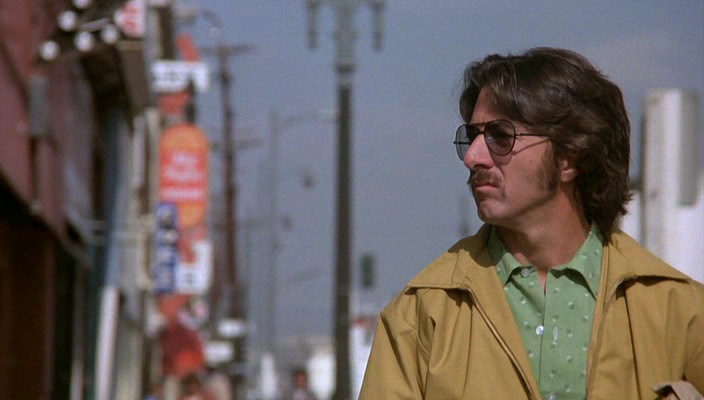
Dustin Hoffman has rarely been as convincing as in this impressive turn as Max Dembo, an erratic ex-convict who struggles to walk the straight and narrow and keep a steady job for long after being released from prison. Often billed as a proto-Safdie Brothers comedy of errors, in which a self-obliterating human dynamo runs crazy loops around his life, ‘Straight Time’ has been cited by Quentin Tarantino as a huge inspiration for his debut (in fact, the director Ulu Grosbard is rightfully cited in Reservoir Dogs’ ‘Special Thanks’ credit list).
During a conversation with beloved actor-director Dennis Hopper, Tarantino hailed it as “one of the greatest crime movies ever made” and admitted that he had actor Robert De Niro watch it in preparation for his 1997 L.A. crime caper ’Jackie Brown’, since his character was also coming fresh out of jail. Furthermore, the director would go on to cast ‘Straight Time’ screenwriter and real-life convicted felon Eddie Bunker as Mr. Blue in ‘Reservoir Dogs’, arguing that it was an honor to have his debut film be mentioned in the same breath as his.
7. The Taking of Pelham One Two Three (Joseph Sargent, 1974)
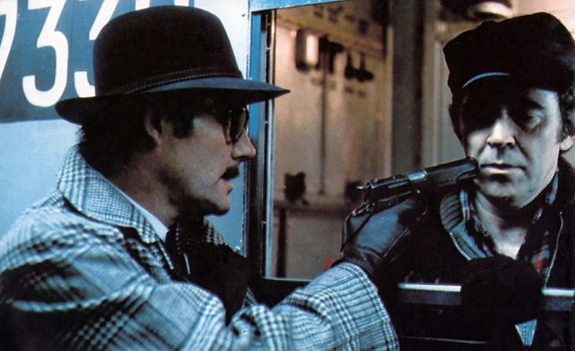
The sleazy, rough-edged underbelly of New York City is captured with mighty rapture in this staple of gritty ’70s cinema, in which four armed men hijack a subway car and demand a ransom of $1 million for the passengers. A textbook example of building and sustaining tension, ‘Pelham’ is a cleverly constructed thriller that comes at you thick and fast.
The film, which is often attributed as the main inspiration for Quentin Tarantino’s color-coded nicknames seen in ‘Reservoir Dogs’, vibrates with the same kind of brazen rhythms of a modern blockbuster yet cleverly reconfigured under the guise of a classic film noir. Rest assured—watching Walter Matthau uncork a career-best performance as a seasoned transit police lieutenant turned white knight will make the watch worthwhile.
8. City on Fire (Ringo Lam, 1987)
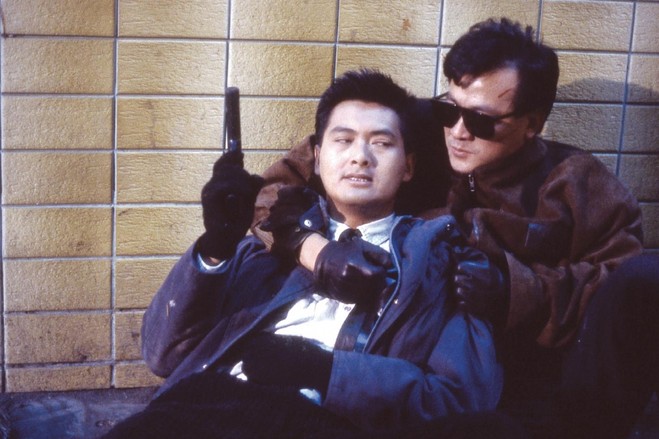
An honest cop who just lost his partner decides to go undercover and infiltrate a crime ring. Once he gains the trust of one of the main leaders, the group plot together an intricate jewelry store heist that eventually backfires spectacularly once the alarms go off, prompting them to retreat to a secluded warehouse where a Mexican standoff takes place.
Just to be clear, the above is not the synopsis for Tarantino’s ‘Reservoir Dogs’, but rather, the 1987 Hong Kong heroic bloodshed actioner is obviously indebted to. Speaking to ‘The Baltimore Sun’, the auteur conceded that ‘City on Fire’ is a “really cool” movie that influenced him a lot. “I got some stuff from it”. Quite a way to put it lightly right there, Quentin.
9. Le Doulos (Jean-Pierre Melville, 1962)
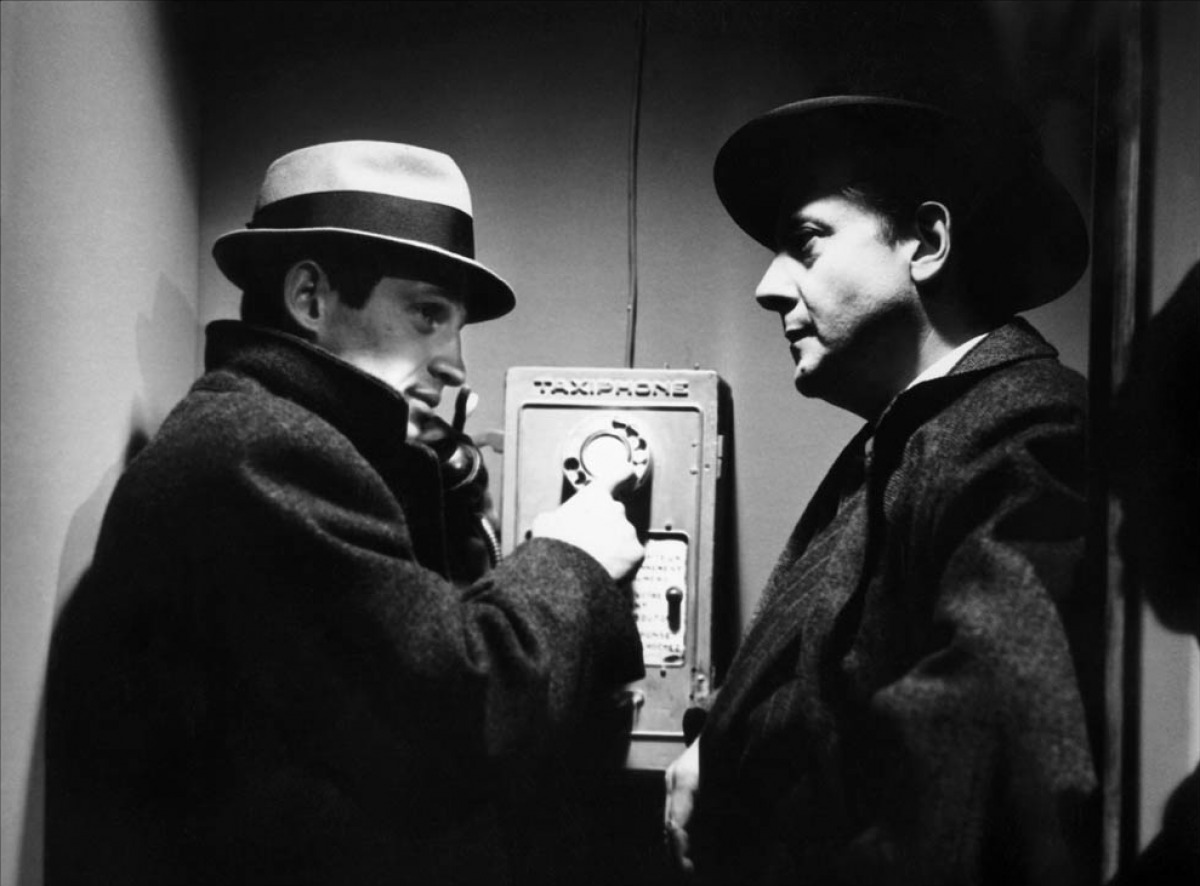
According to Tarantino, few filmmakers in history measure up to the great Jean-Pierre Melville, the mastermind behind ‘Le Samouraï,’, ‘Army of Shadows’, and ’Le Cercle Rouge’, whose name is now firmly entrenched in the upper echelons of noir cinema.
Tarantino aficionados are in for a treat with this taut gangster pulp shot in stark chiaroscuro lightning and filled to the brim with suspense, atmosphere, double-crosses and unexpected twists—touted as his personal favorite screenplay of all time. “I just loved the wildness of watching a movie that up until the last twenty minutes I didn’t know what the fuck I was looking at.”
While promoting ‘Reservoir Dogs’, the director described his groundbreaking debut as a crossbreed of classic American noir and Melville’s French gangster flicks. “Watching his work, you get a sense that you don’t have to know how to make a movie. You don’t have to go to school, you don’t have to know a lens—fuck all that, none of that shit’s important. If you truly love cinema with all your heart and with enough passion, you can’t help but make a good movie”. If ‘Le Doulos’ is anything to go by, Tarantino might be onto something.
10. Point Blank (John Boorman, 1967)
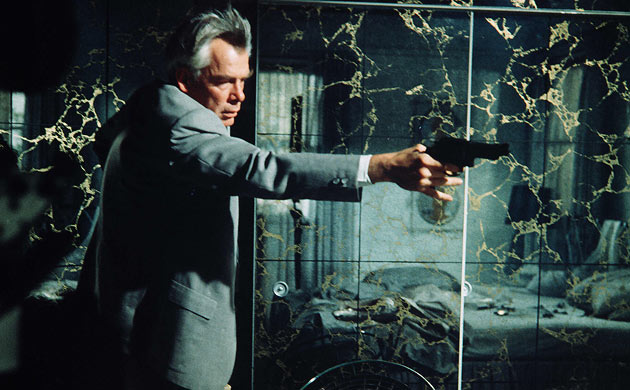
Bookending the present list, we turn to John Boorman, an agent provocateur and pioneer of the New American Wave that cut a deep gash with this swing-for-the-fences thriller, an incendiary and surprisingly graphic film that fuses the innovative editing techniques straight from the Nouvelle Vague with the psychedelic dissonance and bleak nihilism of the Vietnam Era. The result is an uncompromising revenge flick that goes straight for the jugular and clings to you for long after the credits roll, as we watch a grizzled Lee Marvin exacts revenge on those who have wronged him and stabbed him in the back.
Though he noted that at times the film “shares the canned quality of sixties television”, Quentin Tarantino expressed his appreciation for the late-’60s classic in his recently published book, waxing poetic about the potent first ten minutes of the film: “What’s effective about Boorman’s opening is the way it builds and keeps building. The way the forward momentum of Marvin’s shoes tap out a rhythm on the floor, brings to mind both the sizzle of a dynamite fuse and the screech before a car collision.”